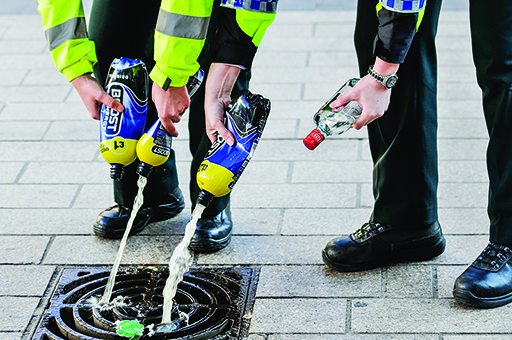5 PCSO powers – alcohol offences
Although the sale of alcohol is a large part of the nighttime economy, it is also one of the main contributing factors to the demand not only on police resources but also those of the other emergency services. There will be a range of situations a PCSO will face where at least one of the people involved is either drunk or under the influence of alcohol. The effects of drinking excess alcohol can cause some people to become aggressive (Paton, 2005) towards other people and property, and pose a danger to themselves.
Alcohol can contribute to antisocial, disorderly and criminal behaviour, particularly in young people. This is compounded when they are young and inexperienced drinkers. The problem does not just stay in the town centres on a Saturday night but is an all too common occurrence in our parks and open spaces. It is also an opportunity for others to exploit young persons under the influence of alcohol.
For a PCSO to deal with young people and alcohol, they have the power under Schedule 3C, Paragraph 4(1) of the Police Reform Act 2002 to require the surrender of alcohol from under 18s. This is accompanied by Section 1(1) of the Confiscation of Alcohol (Young Persons) Act 1997.

